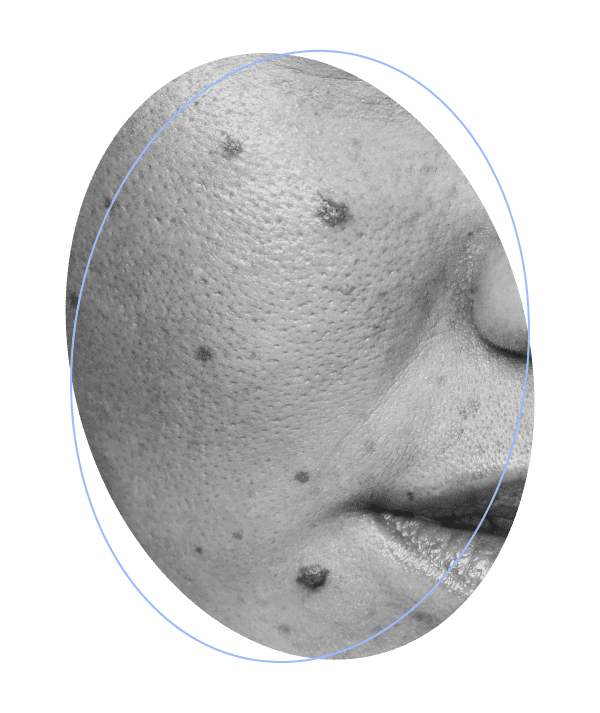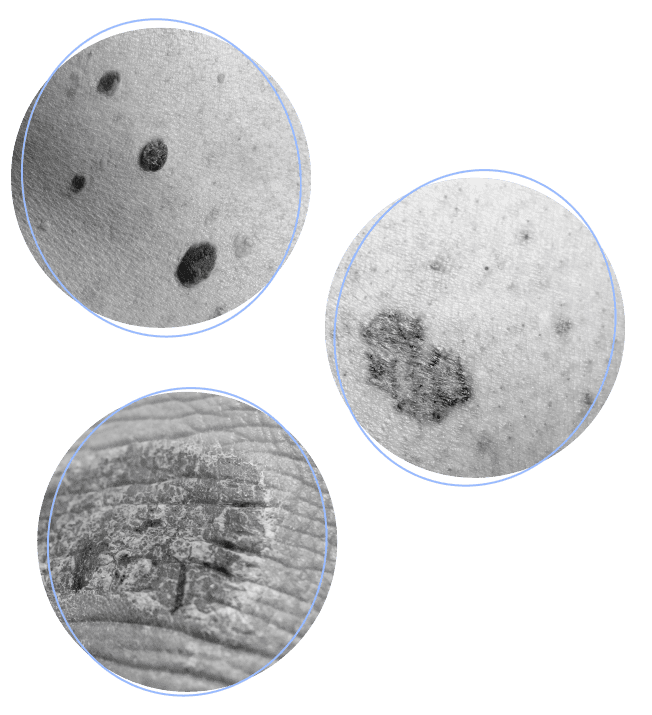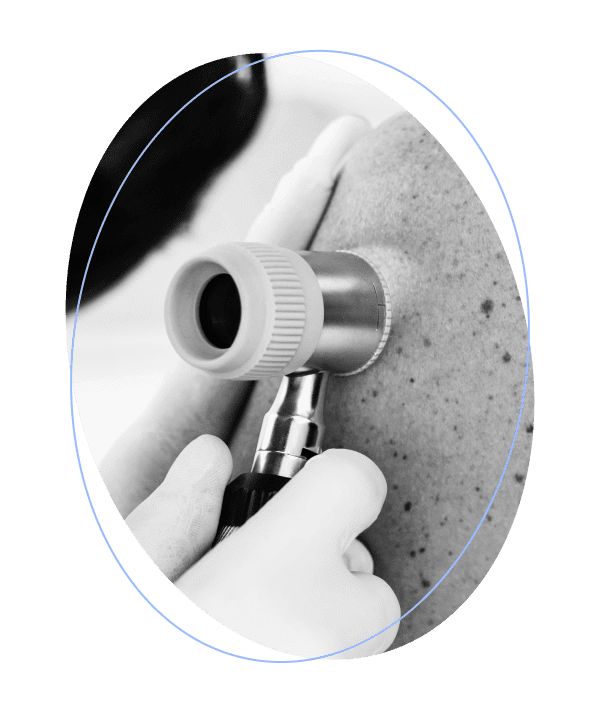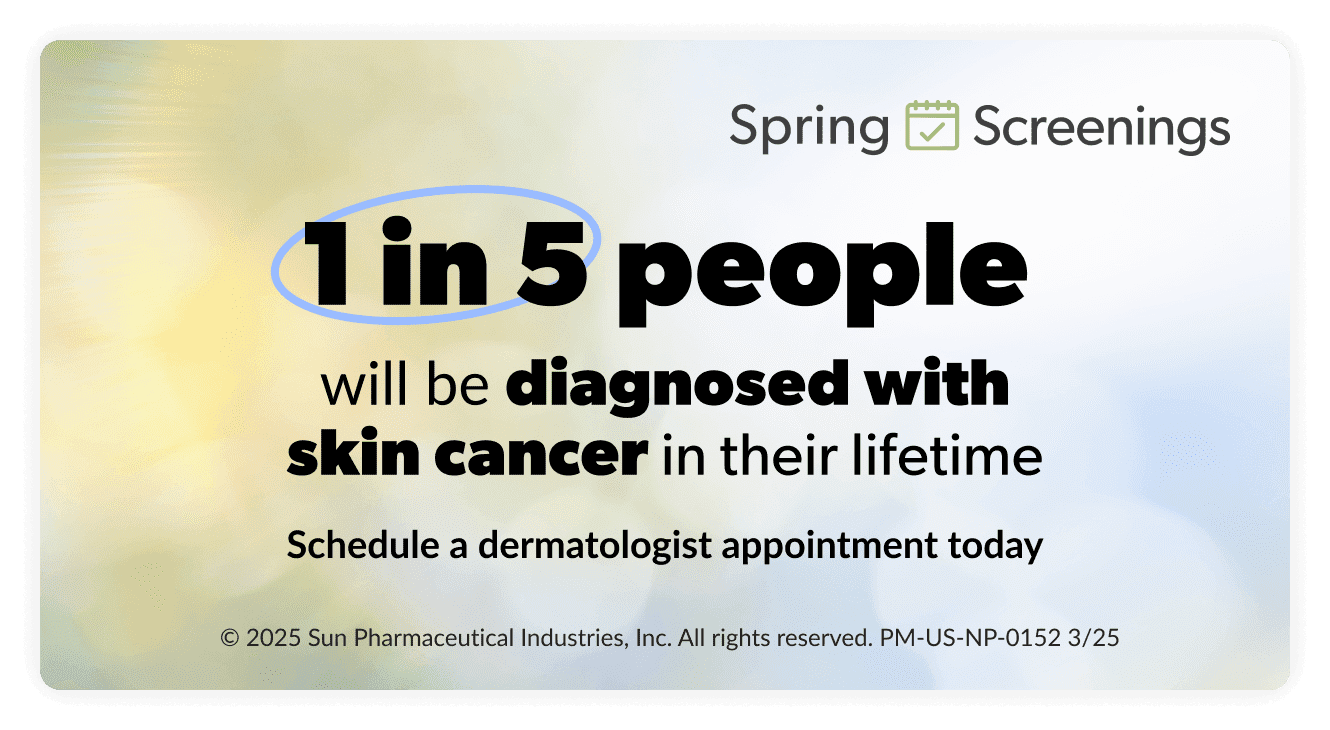
This season brings an
important reason to get screened
Every hour, skin cancer takes the lives of more than 2 people in the US

Who’s at risk?
Every year, more people are diagnosed with skin cancer than all other cancers combined
That makes skin cancer the most common cancer in the United States.
Approximately 9500 Americans are diagnosed every day, and the rates of diagnoses are only going up.
In the last decade alone, the United States has seen a 42% increase in invasive melanoma cases. Nonmelanoma rates, like basal cell and squamous cell carcinoma, are also on the rise—5.4 million of these cases are detected every year.
A dermatologist can confirm if a mark is precancerous or cancerous. Before the warmer weather is in full swing, get an appointment on the books.
What’s at stake?
Marks on your skin may be a sign of something more serious
Precancerous marks
Sunspots may be actinic keratoses (AKs). These precancerous spots are caused by years of sun exposure and are extremely common. Nearly 60 million Americans currently live with AKs.
Up to 20% of AKs will progress into squamous cell carcinoma if not treated within 2 years. That's why it's very important to treat an AK as soon as possible.
Nonmelanoma skin cancers
Squamous cell carcinoma (SCC) and basal cell carcinoma (BCC) are the 2 most common forms of skin cancer. When they are detected and managed early, they tend to be very treatable over time.
Melanoma
Melanoma is the 3rd most common, and most severe, skin cancer.
People whose melanoma is detected and treated before it spreads to the lymph nodes have a 94% chance of living more than 5 years.


Why get screened?
Early detection means better outcomes
Treatment and recovery are much easier when abnormal tissue, precancerous, or cancerous marks are detected before they spread.
Detecting AK, SCC, BCC, and melanoma early is believed to have better outcomes.
Spread the word using the infographic below to make sure your friends, family, and coworkers are empowered to get screened.
Sunspots, which could be precancerous AKs, should be screened early
Discover an FDA-approved treatment specifically for actinic keratosis (AK).
Advanced basal cell carcinoma is serious, but nonsurgical and nonchemotherapy options exist
Discover an FDA-approved oral treatment specifically for locally advanced basal cell carcinoma (laBCC).

